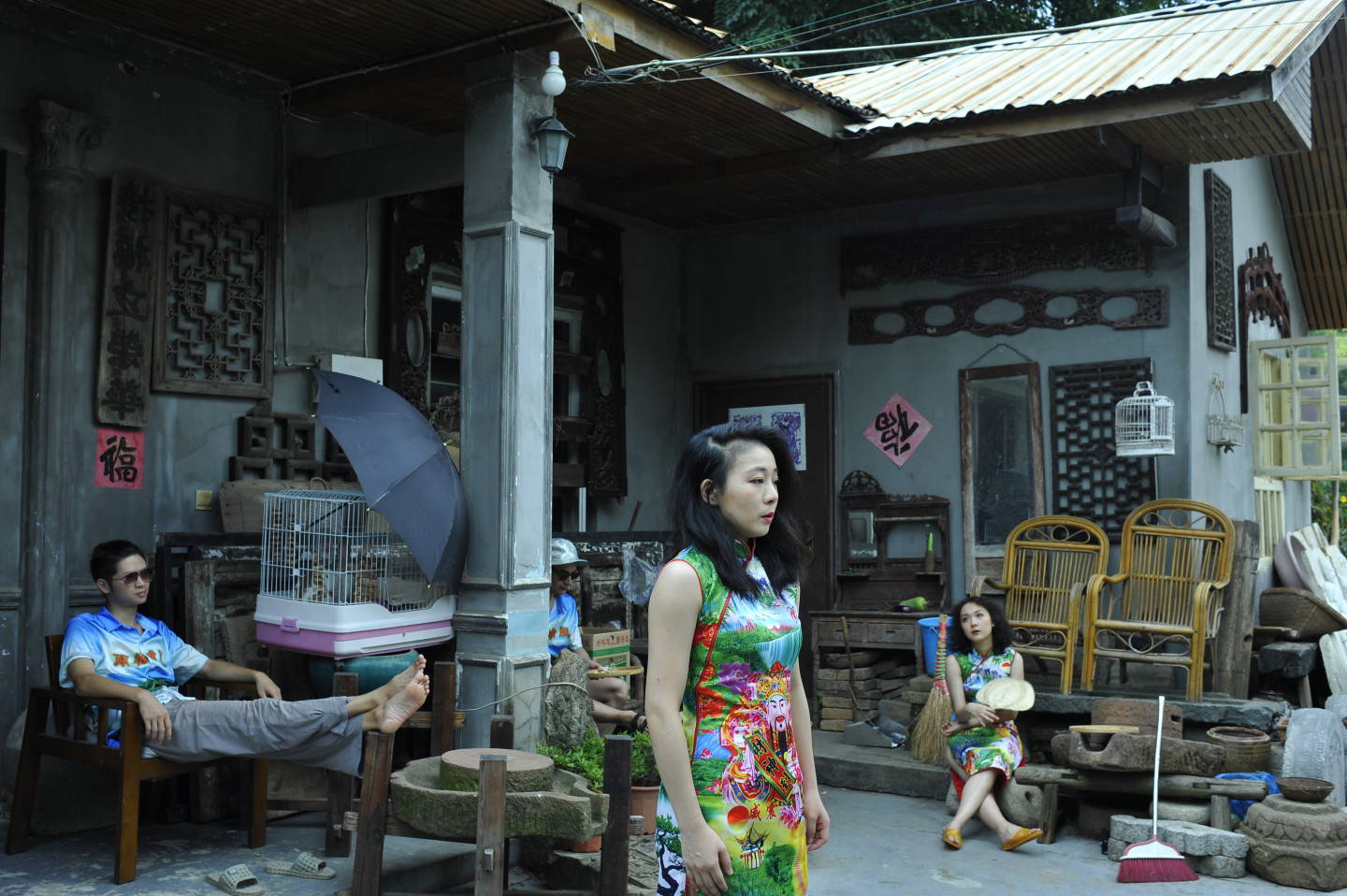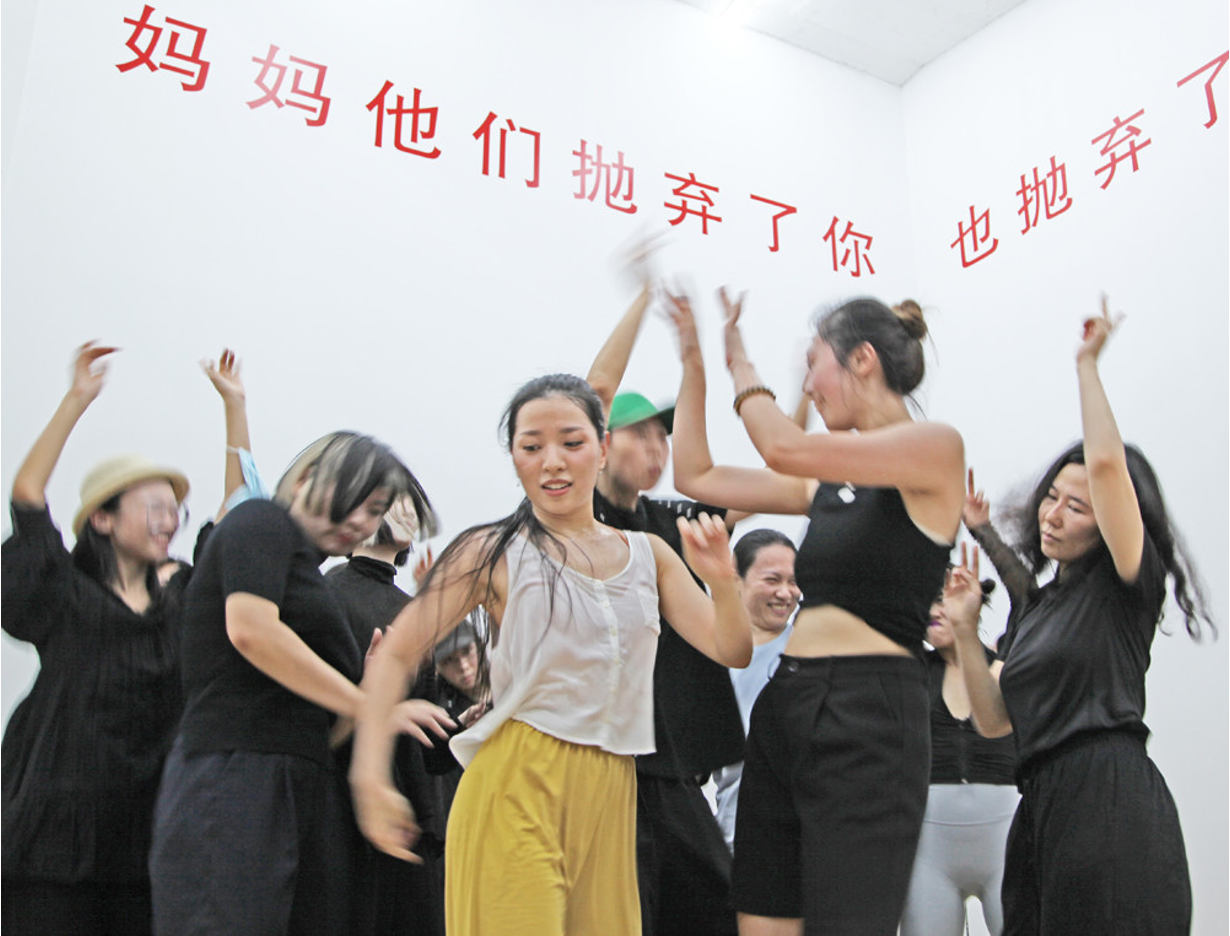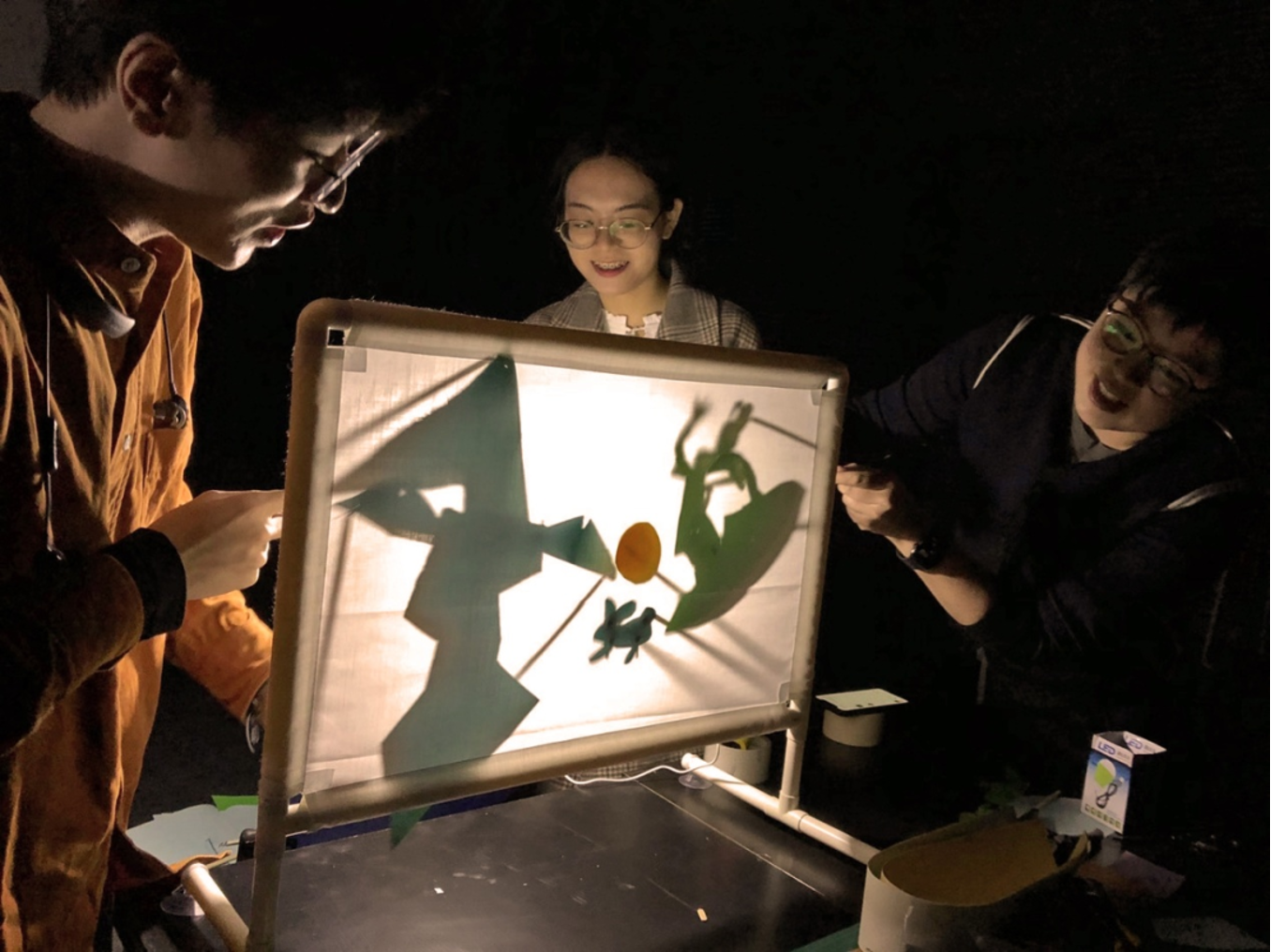It is increasingly difficult for especially young Chinese to express themselves openly, and recent crackdowns on NGOs and advocacies speaking on behalf of suppressed groups has made it virtually impossible to voice activities related to non-conformity in public.
More Than Human was a festival project carried out by members of EUNIC China in close collaboration with Chinese and international partners from end May to early August 2023. The activities took place at various venues in Beijing with satellites in Shanghai and Hangzhou as well as online. The festival discussed and celebrated diversity beyond the spectrum of gender identity. As inclusion and expression is a core value of of the socio-political agenda in EU, co-creation between Chinese and European artists provides a good ground to invite underrepresented groups to discuss sensitive topics in programmes for cultural and intellectual exchange.
The idea behind More Than Human found its inspiration in post-humanism: the subversion and reimagining of all forms of humanist structures through artistic interventions from different countries and socio-cultural backgrounds that focus on post-human subjects, i.e. questioning the current mainstream anthropocentric views of humanity. Through three exhibitions and a range of performances, talks, workshops and film screenings, the activities aimed at showing that the borders between the categories and binaries that have ordered the industrial and post-industrial development of societies — nature/culture, machine/organism and human/machine — are no longer so clear-cut as the Enlightenment thinking would have us believe.
This approach not only offers access and cultural legitimacy for local cultural institutions, it also gives the voices of Chinese artists and communities a rare chance to resonate in an international context in their own right without carrying the victim label.
Finding new ways for (post-)human inclusion and expression in Chinese society
The ways we live and learn about the world have undoubtedly been designed around humans — or more specifically, what we understand “a human” to be. However, the recent issues facing the world today have revealed the limits of our human-centric institutions and systems: human society, as a whole, faces a variety of issues, ranging from the concept of the “individual”, through the idea of a “nation state”, our relationship with our environment and how we treat the other beings that share our globe.
More Than Human invited artists, institutions, visitors and all other participants to imagine and discuss what it means to be post-human, thus challenging traditional assumptions of human nature, moral concern and social interaction. Hence, the project aims at addressing a large range of topics, including history and futurism, ethics and justice, migration and citizenship, trans-species relationships and ecologies, all via an interdisciplinary approach.
The vast majority of More Than Human was developed and implemented by local curator Nessa Cui who was linked to the project from day one. 12 members of EUNIC China played a crucial role in securing contributions from European side, contractually as well as financially, whereas Nessa Cui was in charge of contracting with artists from China and non-European countries and for programming most of the events of the festival.
From the very start, the core activity of More Than Human was the large-scale exhibition which opened on May 27 at Blanc Art Space, a private venue outside of Beijing proper. The venue was specifically chosen due to its location in a ‘free trade zone’ which would allow for bypassing the mandatory approval procedures that apply to all cultural activities in Beijing – and all of China for that matter. The content and presentation were of high quality and exceeded in many ways the expectations that even the most spoiled art audiences would have for a cutting-edge international exhibition in the Chinese capital these years.
A premier platform in China for non-conformist perspectives
The art works produced and exhibited allowed both participants and audiences to seek inspiration from the frictions between species, being, time and technologies to imagine new ways to comprehend the ambiguous and complex realities we live in. An ongoing series of public activities of a more academic nature complemented the exhibition and its related art events (satellites) to build bridges between audiences, communities, and cultural institutions. Through talks, podcasts, and conferences they addressed diversity in a cultural and social sense including isolation, displacement, environmental degradation, and mental health.
These programmes were held in formats that can be contained within the delicate cultural and political climate of China. All in all, More Than Human constituted a premiere platform in China for nonconformist perspectives and experimental intersection that connects and empowers underrepresented segments of the art scene and society, calls for more access and inclusion in cultural life through public engagements in ways that are inventive for the development of cultural relations between Europe and China.
Besides raising awareness of the structures that are employed to exclude non-normative thinking from societal realm and knowledge production, the project aims to develop into a platform for talented artists whose creations and productions face difficulties in China under the current state of things and subsequently to inspire NGOs and advocacies in civil society to join future collaborations.
The set-up with contact and bottom-up approach with local communities from the early stage holds the potential to foster new collaboration models for the cultural relations between Europe and China. As such, More Than Human should equally be regarded as an incubator for artistic and cultural explorations of our conventional perception of humans and thereby also, what it is going to take to become a more responsible human in the future.



